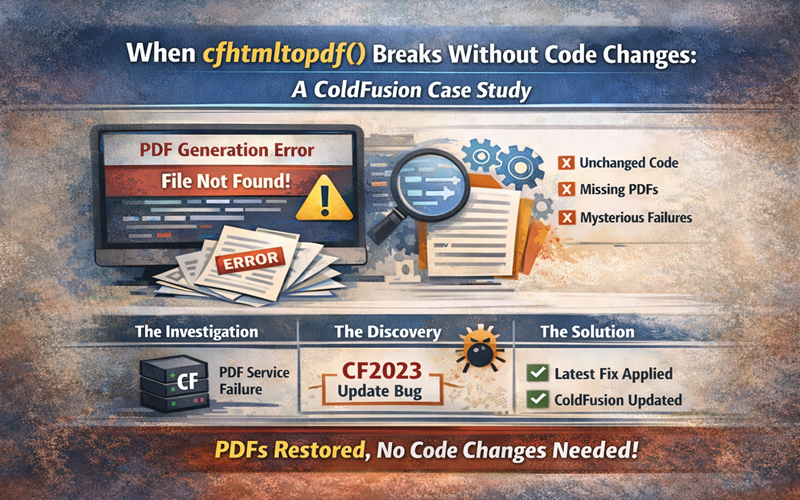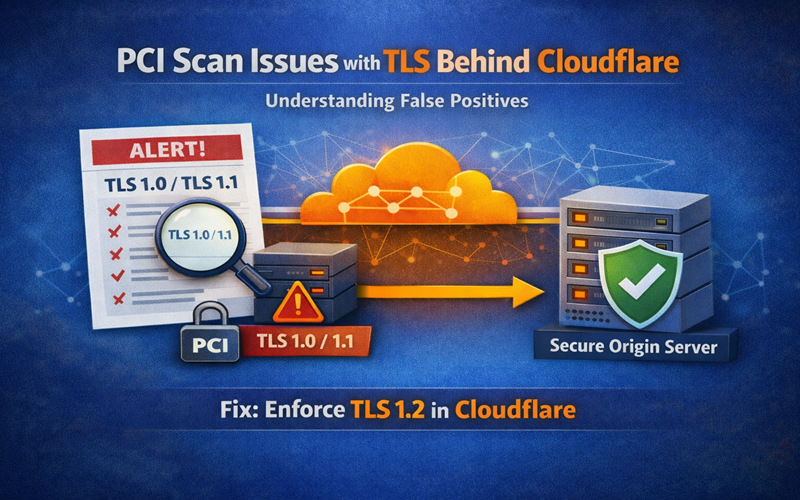ColdFusion can power everything from simple brochure sites to high traffic enterprise applications. While shared hosting providers promise low cost and simplicity, that convenience often comes at the expense of performance, security, and flexibility. Here are the top six pitfalls you’ll encounter on a shared ColdFusion server and how moving to a managed cloud environment can help you overcome them .
1. Limited Server Resources
On a shared server you’re lining up alongside dozens or even hundreds of other accounts, all competing for the same CPU cores, RAM, and disk I/O. ColdFusion’s JVM-based runtime can be memory hungry depending on how much Java heap space was allocated to the ColdFusion process.
- CPU contention means your code may suddenly run at a noticeable performance degradation when another site on the box experiences a traffic spike.
- Java heap space exhaustion can lead to “Out of Memory Error” exceptions, possibly forcing CF to be restarted or even the entire service.
- Disk I/O bottlenecks slow down template compilation, session serialization, and database writes, making page loads unpredictable.
In a managed cloud environment, your instance has dedicated vCPUs, guaranteed RAM, and SSD volumes isolated from noisy neighbors, ensuring consistent performance under load.
2. Performance Bottlenecks Under Load
To combat the problem of limited resources, shared hosts may implement aggressive throttling rules once CPU or memory usage crosses a threshold. While this protects the overall server, it throttles your requests right when your users need speed most—during a product launch, a marketing campaign, or peak shopping hours.
- Request queuing: ColdFusion will queue incoming requests when thread pools are exhausted, causing long wait times and potential errors.
- Inefficient caching: You may be unable to leverage in-memory or distributed caches (e.g., Redis) effectively because the host restricts background services.
Managed cloud servers let you scale horizontally (add more instances behind a load balancer) or vertically (increase CPU/RAM on demand) and give you full control over CF caching layers and thread pool settings.
3. No Server Level Customizations
ColdFusion’s strength lies in its configurability: from JVM arguments (-Xms, -Xmx, Garbage Collection tuning) to CFAdmin settings (request timeouts, datasource connection pooling) and even custom Java libraries or JDBC drivers. On a shared plan you can’t:
- Adjust the JVM heap or GC policy to suit your app’s memory profile.
- Install third party JARs for specialized functionality (e.g., PDF manipulation, advanced logging frameworks).
- Enable or disable modules (such as WS-Security or PDFG) because these require CFAdmin or server level changes.
With a dedicated cloud VM or container, you have root access. You can tune the JVM, deploy your own extensions to ColdFusion’s classpath, or hook into monitoring agents like New Relic or Splunk for real time insights.
4. Security Concerns in Multi-Tenant Environments
In a shared setup you’re only as secure as the weakest link—another tenant’s breach or attack can drag your site down too.
- DDoS spillover: If one account on your server is targeted by a volumetric DDoS attack, it can saturate the shared network pipe and CPU, taking all sites on that box offline or forcing your provider to throttle traffic.
- Delayed patching: Shared hosts often group appliance and CFML updates into infrequent “maintenance windows,” leaving known vulnerabilities open for weeks or months.
Managed cloud hosting isolates you into your own network segment (VPC or container), with dedicated firewall rules, rapid emergency patching, and DDoS mitigation at the edge so attacks on someone else never touch your environment.
5. Outdated ColdFusion Versions
Shared hosts often peg you to older ColdFusion releases. With 2025 just released, you may be stuck on CF2023 or much earlier versions long after the newer versions bring critical performance, security, and language improvements. That means you miss out on:
- Security: Recent ColdFusion versions have received multiple updates addressing critical vulnerabilities, including arbitrary file system read and code execution issues.
- GraphQL Support: simple abstraction with query batching, query deduplication, and static typing of GraphQL query results
- New spreadsheet and CSV functions: Support for streaming spreadsheets, 30+ new methods for cell and sheet properties, and methods to read or write CSV files
- Revamped PDF Engine: Includes a revamped PDF engine for generating high-quality PDF documents
In a managed cloud plan, you choose exactly which ColdFusion version to run, upgrade on your schedule, and test in parallel staging environments before promoting to production—keeping you on the cutting edge.
6. Generic, One-Size-Fits-All Support
When your site breaks whether from a JVM crash, database connection leak, or custom library conflict, shared hosting support teams often handle a wide variety of platforms (PHP, .NET, Java) and can’t offer deep ColdFusion expertise. You end up:
- Waiting hours for canned responses.
- Being told “it’s out of our scope” when you ask for JVM tuning.
- Lacking visibility into CF logs or thread dump analysis, which slows down troubleshooting.
With a managed ColdFusion cloud provider, you gain a specialized team that speaks CFAdmin fluently, provides dedicated SLAs for ColdFusion issues, and can even offer code-level recommendations to optimize your application.
Make the Move to Managed Cloud ColdFusion Hosting
Shared hosting can be tempting for cost conscious startups or simple demo sites but for any production application, the risks outweigh the savings. A managed cloud environment delivers:
- Expert support tailored to ColdFusion
- Guaranteed resources and predictable performance
- Flexible scaling to meet traffic surges
- Full customization of JVM and CF settings
- Robust security with per instance isolation and rapid patching
- Access to the latest CF features on your timeline
Ready to leave shared hosting behind? Visit xByte Cloud’s ColdFusion Hosting to learn how our managed cloud servers can give your ColdFusion applications the performance, security, and flexibility they deserve.


